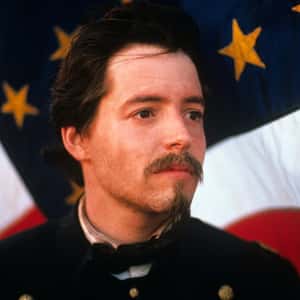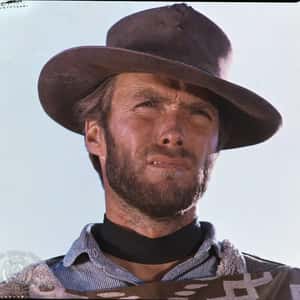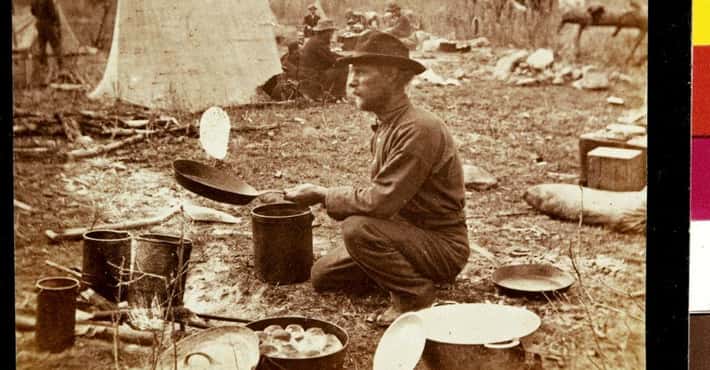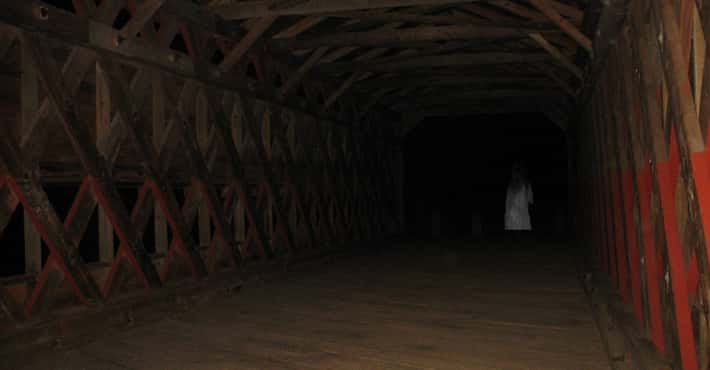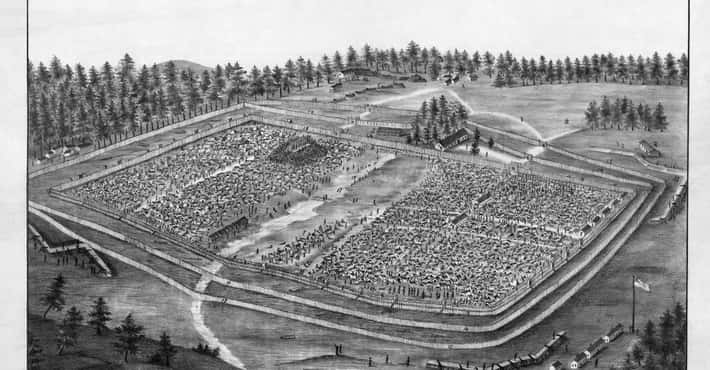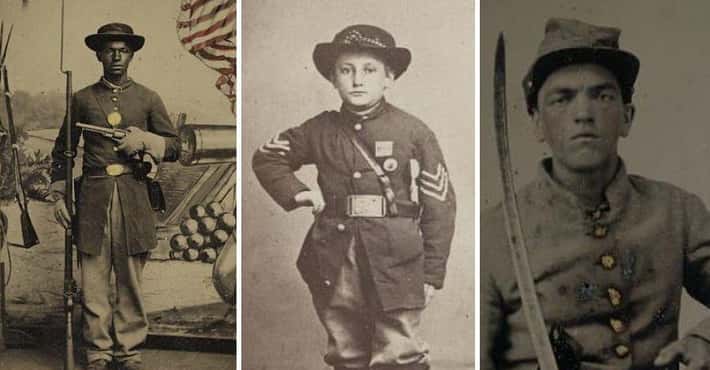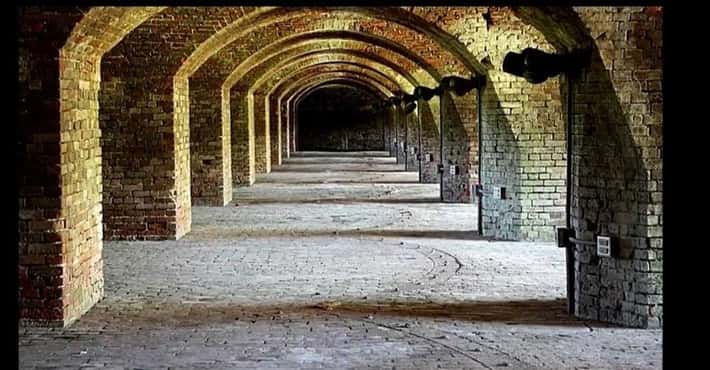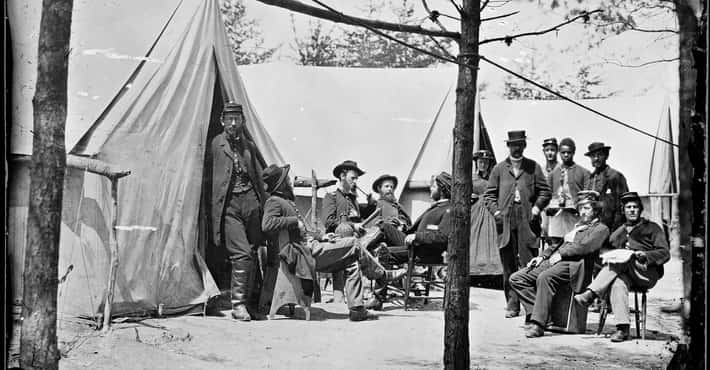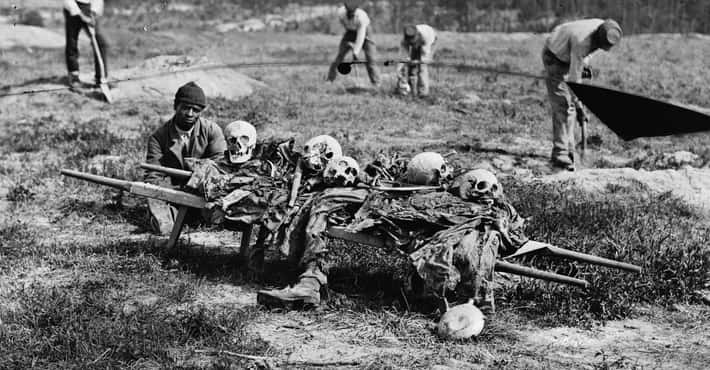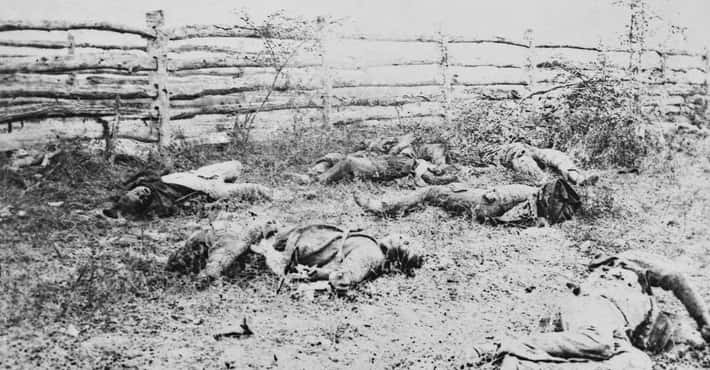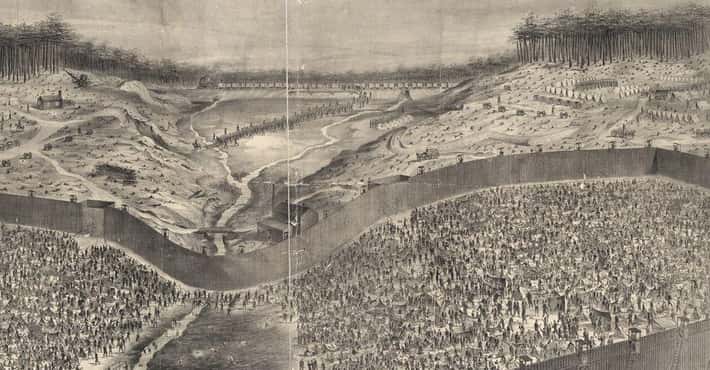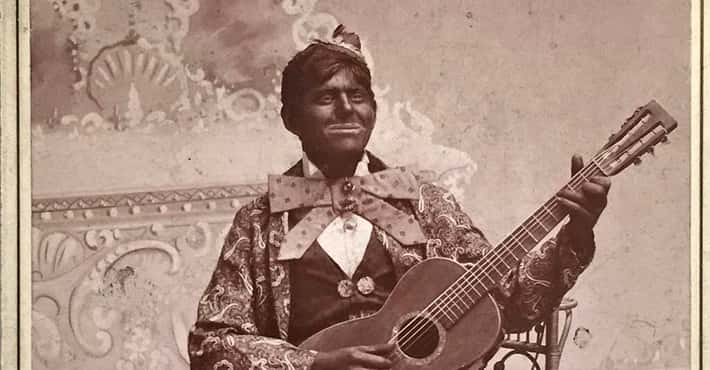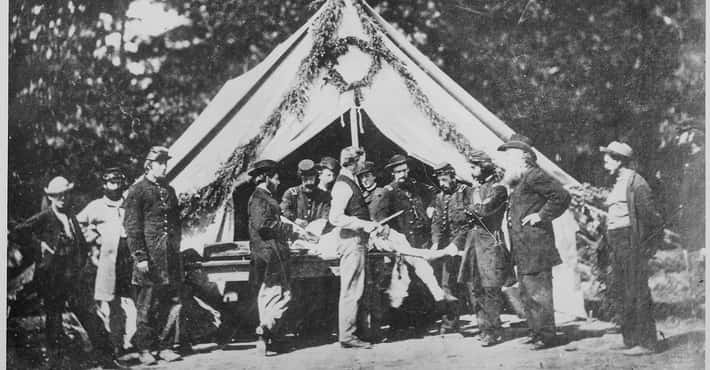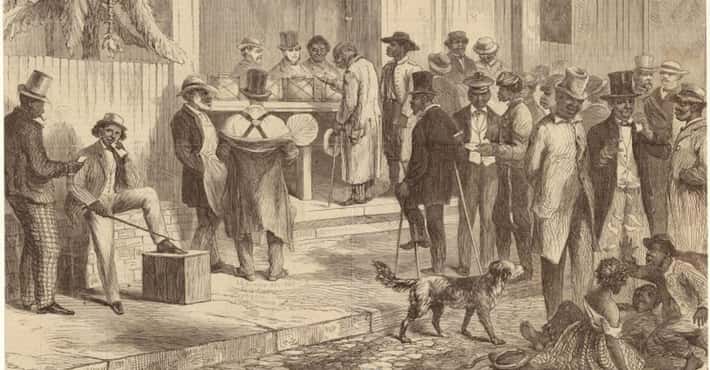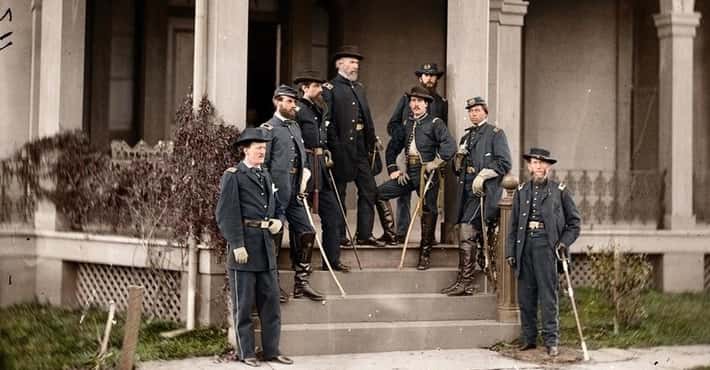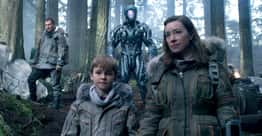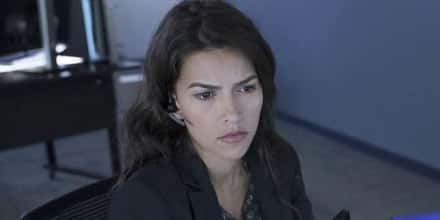The 25+ Best Civil War Movies Of All Time, Ranked
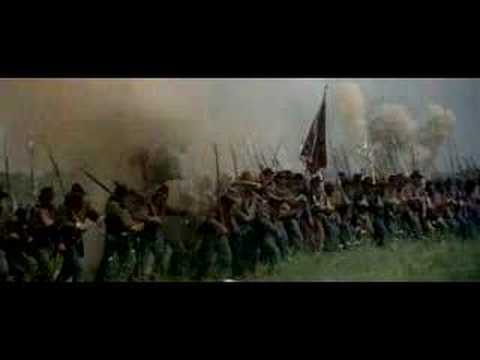 1Tom Berenger, Martin Sheen, Stephen Lang
1Tom Berenger, Martin Sheen, Stephen LangGettysburg is a compelling epic that brings to life the pivotal battle of the American Civil War over the course of three days in 1863. Directed by Ronald F. Maxwell, this film meticulously presents the strategies, valor, and turmoil experienced by both Union and Confederate forces. With a sprawling cast that includes Tom Berenger as Lt. Gen. James Longstreet, Jeff Daniels as Col. Joshua Chamberlain, and Martin Sheen as Gen. Robert E. Lee, the performances bring a human dimension to the historical figures they portray. Despite its length and detailed battle scenes, Gettysburg manages to be both educational and profoundly moving. While it may not have swept major awards ceremonies, it was warmly received for its historical accuracy and dedication to portraying a balanced view of both sides of the battle. Its impact extends beyond entertainment, serving as a valuable resource for history enthusiasts and educators alike.
More Gettysburg- #25 of 262 onThe 200+ Best War Movies Of All Time
- #52 of 241 onThe 200+ Best Movies Based On A True Story
- #13 of 79 onGreat Period Movies Set in the 19th Century
- Matthew Broderick, Denzel Washington, Morgan Freeman
Glory is a powerful recounting of the first all-African American regiment to fight for the North in the Civil War, the 54th Massachusetts Infantry Regiment. Directed by Edward Zwick, the film explores themes of courage, discrimination, and brotherhood against the backdrop of one of the darkest periods in American history. Denzel Washington stands out in an Oscar-winning performance, alongside Matthew Broderick as Colonel Robert Gould Shaw, who leads the regiment, and Morgan Freeman, embodying the dignity and resolve of the soldiers. Released in 1989, Glory was not only critically acclaimed for its raw portrayal of war and its effects but also for highlighting the often overlooked contributions of African American soldiers. Garnering several awards, including three Academy Awards for Best Supporting Actor, Best Cinematography, and Best Sound, Glory remains a poignant, inspiring testament to the resilience of the human spirit.
More Glory- #14 of 262 onThe 200+ Best War Movies Of All Time
- #133 of 399 onThe Best Movies Of The 1980s, Ranked
- #38 of 90 onThe 85+ Most Inspirational Movies Of All Time
 3Clint Eastwood, Chief Dan George, Sondra Locke
3Clint Eastwood, Chief Dan George, Sondra LockeThe Outlaw Josey Wales, directed by and starring Clint Eastwood, is a revered classic in the Western genre. The film follows Josey Wales, a Missouri farmer driven to revenge after his family is brutally murdered by Union militants during the Civil War. As he seeks vengeance, Wales becomes a marked man, pursued by bounty hunters and Union soldiers alike, but finds redemption through his encounters with an eclectic group of outcasts. Eastwood's portrayal of Wales combines a gritty toughness with a nuanced humanity, capturing the essence of a man torn between retribution and salvation. Released in 1976, the film was both a critical and commercial success, praised for its storytelling, moral complexity, and Eastwood's performance. Although it did not win major awards, The Outlaw Josey Wales was nominated for an Academy Award for its music score and has since become a beloved and influential work in the Western canon.
- #500 of 769 onThe Most Rewatchable Movies
- #4 of 288 onThe 250+ Best Western Movies Of All Time
- #36 of 191 onThe Best Movies For Men
- Clint Eastwood, Eli Wallach, Lee Van Cleef
The Good, The Bad and The Ugly, directed by Sergio Leone, is an iconic Spaghetti Western that completes the Dollars Trilogy. Set against the backdrop of the American Civil War, the film follows three rugged gunslingers competing to find a buried fortune in Confederate gold. Clint Eastwood returns as the laconic "Good," Lee Van Cleef embodies the merciless "Bad," and Eli Wallach steals scenes as the chaotic "Ugly." Their treacherous journey is underscored by Ennio Morricone's unforgettable score, elevating the film into a cinematic legend. Released in 1966, it revolutionized the Western genre with its gritty realism, moral ambiguity, and breathtaking cinematography. Despite its enduring influence and critical acclaim, the film did not receive contemporary awards but has since been recognized as a masterpiece, solidifying its place in film history and the hearts of cinephiles worldwide.
- #53 of 262 onThe 200+ Best War Movies Of All Time
- #329 of 769 onThe Most Rewatchable Movies
- #2 of 288 onThe 250+ Best Western Movies Of All Time
 5Clark Gable, Vivien Leigh, Leslie Howard
5Clark Gable, Vivien Leigh, Leslie HowardGone With The Wind, directed by Victor Fleming, is an epic tale of love, war, and resilience set against the backdrop of the American Civil War and Reconstruction era. Centered around the fiery Scarlett O'Hara, played with indomitable spirit by Vivien Leigh, and her tumultuous relationships with the gallant Ashley Wilkes and the roguish Rhett Butler, portrayed by Leslie Howard and Clark Gable respectively, the film is as much a story of personal survival as it is a historical saga. Released in 1939, its grandeur in storytelling, scale, and production was unprecedented. Sweeping the Academy Awards, Gone With The Wind won eight competitive Oscars, including Best Picture, Best Director, and Best Actress for Leigh, alongside two honorary awards, making it one of the most celebrated films in Hollywood's history and an enduring classic that captivates generations of viewers.
More Gone with the Wind- Dig Deeper...Dark Tales From Behind The Scenes Of 'Gone with the Wind'
- #109 of 262 onThe 200+ Best War Movies Of All Time
- #315 of 769 onThe Most Rewatchable Movies
 6Kevin Costner, Mary McDonnell, Graham Greene
6Kevin Costner, Mary McDonnell, Graham GreeneDances With Wolves is a breathtaking epic that transports viewers to the vast, untamed landscapes of the American frontier. Directed by and starring Kevin Costner, the film tells the story of Lt. John J. Dunbar, a Union Army officer who finds solace and a sense of belonging among the Lakota Sioux tribe during the Civil War era. As Dunbar becomes deeply integrated into the tribal community, he undergoes a profound transformation, questioning his own cultural identities and the encroaching threats of Western expansion. Released in 1990, the film broke new ground with its sympathetic portrayal of Native American cultures and stunning cinematography. Dances With Wolves was a critical and commercial triumph, sweeping the Academy Awards with seven Oscars, including Best Picture and Best Director for Costner. Its success marked a significant moment in cinema, championing a narrative of unity and respect across cultural divides.
More Dances with Wolves- #27 of 50 onThe Biggest Movies Of The '90s, Ranked
- And Deeper...Movies That Won Best Picture at the Oscars and Golden Globes
- #51 of 262 onThe 200+ Best War Movies Of All Time
 7James Stewart, Doug McClure, Glenn Corbett
7James Stewart, Doug McClure, Glenn CorbettShenandoah stands out as a unique blend of the Western and War film genres, set against the troubled backdrop of the American Civil War. The film stars Jimmy Stewart as Charlie Anderson, a Virginia farmer who strives to keep his family out of the conflict, believing their personal allegiance lies neither with the North nor the South. However, when his youngest son is mistakenly taken prisoner by Union soldiers, Anderson is forced into a moral and physical quest that challenges his pacifistic stance and the very fabric of his familial bonds. Released in 1965, Shenandoah is revered for Stewart's compelling performance, which brings depth and nuance to the narrative. Despite its critical acclaim and enduring popularity, the film did not garner major awards but remains a poignant exploration of the impact of war on the individual and the often blurred lines between right and wrong amidst national turmoil.
More Shenandoah- #49 of 288 onThe 250+ Best Western Movies Of All Time
- #247 of 308 onThe 295+ Best Movies For Guys
- #18 of 46 onThe Best 1960s Western Movies, Ranked
 8Audie Murphy, Bill Mauldin, John Dierkes
8Audie Murphy, Bill Mauldin, John DierkesThe Red Badge of Courage, directed by John Huston, is a cinematic adaptation of Stephen Crane's classic novel of the same name. The film delves into the psychological turmoil of war through the eyes of Henry Fleming, a Union soldier battling his fears in the midst of the Civil War. Portrayed with compelling depth by Audie Murphy, a real-life World War II hero, Fleming's journey is a raw and introspective look at the internal conflicts that rage within, mirroring the external chaos of battle. Released in 1951, its honest portrayal of fear, courage, and redemption was ahead of its time, resonating deeply with audiences and critics alike. Despite its impactful narrative and performance, the film did not secure major awards but remains a significant work for its early exploration of the psychological impacts of war, setting a precedent for future war dramas.
- #111 of 262 onThe 200+ Best War Movies Of All Time
- #29 of 30 onThe Best Movies With Red in the Title
- #11 of 29 onThe Best 1950s War Movies, Ranked
Gods and Generals, a prequel to the acclaimed Gettysburg, is a meticulous examination of the early years of the American Civil War, focusing on key historical figures and the complex moral dilemmas they faced. Directed by Ronald F. Maxwell, the film stars Jeff Daniels as Lieutenant Colonel Joshua Lawrence Chamberlain, Stephen Lang as Stonewall Jackson, and Robert Duvall as General Robert E. Lee. The narrative spans from the outbreak of war through the devastating Battle of Chancellorsville, offering an in-depth look at the motivations, strategies, and humanity of both Union and Confederate leaders. Despite its ambition and the detailed portrayal of historical events, Gods and Generals received mixed reviews upon its release in 2003 and did not make a significant impact at award ceremonies. However, it has been appreciated by Civil War enthusiasts for its commitment to authenticity and its exploration of the era’s complex dynamics.
 10William H. Macy, Thomas F. Wilson, William Sanderson
10William H. Macy, Thomas F. Wilson, William SandersonAndersonville is a harrowing made-for-television film that delves into the grim realities of one of the most infamous Confederate prisoner-of-war camps during the American Civil War. Directed by John Frankenheimer, the film captures the dire conditions, despair, and struggle for survival faced by Union soldiers imprisoned in Andersonville, Georgia. Through the eyes of a group of newly captured prisoners, the narrative unveils the brutality of camp life, underscored by themes of solidarity, betrayal, and the human spirit's endurance. Despite its challenging subject matter, Andersonville received critical acclaim for its raw portrayal and historical accuracy. The film notably won two Emmy Awards, including Outstanding Directing for a Miniseries or a Special, and was praised for bringing a significant, though dark, chapter of American history to the screen, contributing to the broader understanding of the Civil War's complexities and tragedies.
 11Jude Law, Nicole Kidman, Renée Zellweger
11Jude Law, Nicole Kidman, Renée ZellwegerCold Mountain is an evocative drama set against the brutal backdrop of the American Civil War, directed by Anthony Minghella. This film tells the story of Inman, a Confederate soldier played with depth by Jude Law, who embarks on a perilous journey back to his beloved Ada, portrayed by Nicole Kidman, in Cold Mountain, North Carolina. Along his journey, the film explores themes of love, survival, and the ravages of war, both on the battlefield and the home front. Renée Zellweger delivers a standout performance as Ruby Thewes, Ada's resilient helper, earning her an Academy Award for Best Supporting Actress. Released in 2003, Cold Mountain garnered several Oscar nominations, including Best Actor for Law and Best Original Score, highlighting its poignant storytelling and the powerful performances of its cast.
More Cold Mountain- #156 of 288 onThe 250+ Best Western Movies Of All Time
- #46 of 80 onThe Best Period Romance Movies
- #29 of 152 onThe Best Movies Of 2003, Ranked
 12Skeet Ulrich, Tobey Maguire, Jewel
12Skeet Ulrich, Tobey Maguire, JewelRide With The Devil is an immersive dive into the complexities and moral ambiguities of the American Civil War, focusing on the guerrilla warfare that tore through Missouri. Directed by Ang Lee and released in 1999, the film follows a group of young fighters who ally with the Bushwhackers, Southern sympathizers conducting raids against Union forces. Tobey Maguire and Skeet Ulrich lead the cast as friends drawn into the conflict, with Jeffrey Wright delivering a standout performance as a freed slave fighting alongside his former owner's son. The narrative challenges conventional war story tropes, exploring themes of loyalty, love, and the personal cost of war. Despite its compelling storyline and strong performances, Ride With The Devil did not receive major awards upon its release. However, it has since been recognized for its nuanced portrayal of a less-examined side of Civil War history.
More Ride with the Devil- #249 of 288 onThe 250+ Best Western Movies Of All Time
- #13 of 58 onThe Best '90s Westerns, Ranked
- #8 of 16 onUnderrated Historical Movies That Flopped At The Box Office
 13John Wayne, William Holden, Constance Towers
13John Wayne, William Holden, Constance TowersThe Horse Soldiers is a captivating blend of action and drama, set in the midst of the American Civil War. Directed by John Ford, this 1959 film stars John Wayne as Col. John Marlowe, a Union cavalry officer leading a risky mission deep into Confederate territory to destroy a strategic rail and supply center. Alongside him is William Holden as the regiment's surgeon, whose opposing views on the war and ethics add depth to their perilous journey. Despite the tension and the backdrop of war, the film explores themes of honor, duty, and the complexity of human conflict. While The Horse Soldiers didn’t garner major awards upon its release, it has since been celebrated for its strong performances, Ford's adept direction, and its contribution to the war genre, solidifying its status as a classic in both Western and war filmography.
More The Horse Soldiers- #51 of 288 onThe 250+ Best Western Movies Of All Time
- #17 of 63 onThe Best Western Movies of the 1950s
- #96 of 166 onThe Best Military Movies Ever Made
 14Errol Flynn, Olivia de Havilland, Arthur Kennedy
14Errol Flynn, Olivia de Havilland, Arthur KennedyThey Died with Their Boots On is a romanticized retelling of the life and times of General George Armstrong Custer, from his days at West Point to his final stand at the Battle of Little Big Horn. Directed by Raoul Walsh and released in 1941, the film stars Errol Flynn in a charismatic portrayal of Custer, capturing his bravado, leadership, and the controversial decisions that defined his career. Olivia de Havilland stars opposite Flynn, adding a poignant layer to the narrative as Custer’s devoted wife, Elizabeth. While the film takes considerable liberties with historical facts, its dramatic storytelling and spirited performances made it a hit with audiences of the time. Despite its box office success, They Died with Their Boots On did not secure major cinematic awards, yet it remains a significant piece of cinema for its compelling, albeit romanticized, depiction of an American legend.
- #111 of 288 onThe 250+ Best Western Movies Of All Time
- #10 of 49 onThe Best 1940s Western Movies
- #13 of 33 onThe Best 1940s War Movies, Ranked
 15Willard Mack, Charles K. FrenchThe Battle of Gettysburg is a 1913 American silent drama film directed by Charles Giblyn and Thomas H. Ince. The film is now considered to be lost, although some battlefield footage was used by Mack Sennett in his comedy Cohen Saves the Flag, which was shot on location alongside this production. However there are claims that The Battle of Gettysburg was screened in France in 1973. The film was shot in Malibu, California.
15Willard Mack, Charles K. FrenchThe Battle of Gettysburg is a 1913 American silent drama film directed by Charles Giblyn and Thomas H. Ince. The film is now considered to be lost, although some battlefield footage was used by Mack Sennett in his comedy Cohen Saves the Flag, which was shot on location alongside this production. However there are claims that The Battle of Gettysburg was screened in France in 1973. The film was shot in Malibu, California. 16
16Ambrose Bierce: Civil War Stories
Campbell Scott, Kip Niven, Vivian SchillingAmbrose Bierce: Civil War Stories is an anthology film that brings to life the experiences and writings of Ambrose Bierce, a famed American journalist, writer, and Civil War veteran. Released in 2006, the film explores the horrors and absurdities of war through a series of vignettes based on Bierce’s own stories, notably drawing from his firsthand experiences on the battlefield. Campbell Scott stars as Bierce, delivering a performance that captures the author’s sharp wit and darkly introspective view of war. Through a mix of historical drama and Bierce’s trademark sardonic humor, the film offers a unique lens on the Civil War, reflecting on its impact on both the national psyche and the individual soul. Despite its intriguing subject matter and solid performances, Ambrose Bierce: Civil War Stories flew under the radar at major award ceremonies but remains a thoughtful and compelling watch for those interested in Civil War history and literature.
 17Clint Eastwood, Geraldine Page, Elizabeth HartmanOffbeat Civil War drama in which a wounded Yankee soldier, after finding refuge in an isolated girls' school in the South towards the end of the war, becomes the object of the young women's sexual fantasies. The soldier manipulates the situation for his own gratification, but when he refuses to completely comply with the girls' wishes, they make it very difficult for him to leave.More The Beguiled
17Clint Eastwood, Geraldine Page, Elizabeth HartmanOffbeat Civil War drama in which a wounded Yankee soldier, after finding refuge in an isolated girls' school in the South towards the end of the war, becomes the object of the young women's sexual fantasies. The soldier manipulates the situation for his own gratification, but when he refuses to completely comply with the girls' wishes, they make it very difficult for him to leave.More The Beguiled- #180 of 288 onThe 250+ Best Western Movies Of All Time
- #34 of 45 onThe Best Movies Starring Clint Eastwood
- #40 of 44 onThe Best 1970s Westerns, Ranked
 18Buster Keaton, Marion Mack, Glen CavenderOne of the most revered comedies of the silent era, this film finds hapless Southern railroad engineer Johnny Gray (Buster Keaton) facing off against Union soldiers during the American Civil War. When Johnny's fiancée, Annabelle Lee (Marion Mack), is accidentally taken away while on a train stolen by Northern forces, Gray pursues the soldiers, using various modes of transportation in comic action scenes that highlight Keaton's boundless wit and dexterity.More The General
18Buster Keaton, Marion Mack, Glen CavenderOne of the most revered comedies of the silent era, this film finds hapless Southern railroad engineer Johnny Gray (Buster Keaton) facing off against Union soldiers during the American Civil War. When Johnny's fiancée, Annabelle Lee (Marion Mack), is accidentally taken away while on a train stolen by Northern forces, Gray pursues the soldiers, using various modes of transportation in comic action scenes that highlight Keaton's boundless wit and dexterity.More The General- #209 of 262 onThe 200+ Best War Movies Of All Time
- #505 of 704 onThe All-Time Greatest Comedy Films
- #559 of 633 onThe 600+ Funniest Movies Of All Time
 19Armand Assante, Donald Sutherland, Alex JenningsThe Hunley is a 1999 television movie directed by John Gray. The film is based on the true story of the H. L. Hunley submarine and the Action of 17 February 1864.
19Armand Assante, Donald Sutherland, Alex JenningsThe Hunley is a 1999 television movie directed by John Gray. The film is based on the true story of the H. L. Hunley submarine and the Action of 17 February 1864. 20Fess Parker, Jeffrey Hunter, Jeff YorkIt's the Civil War, and Union spy James J. Andrews (Fess Parker) is on a top-secret mission: to steal a Confederate train outside of Atlanta and take it back to Union territory in Tennessee, using it to sabotage and destroy Confederate supply routes along the way. But the train's conductor (Jeffrey Hunter) is on to Andrews and is determined to try his best to throw a wrench in the Union spy's plans before he delivers the train to his fellow soldiers.
20Fess Parker, Jeffrey Hunter, Jeff YorkIt's the Civil War, and Union spy James J. Andrews (Fess Parker) is on a top-secret mission: to steal a Confederate train outside of Atlanta and take it back to Union territory in Tennessee, using it to sabotage and destroy Confederate supply routes along the way. But the train's conductor (Jeffrey Hunter) is on to Andrews and is determined to try his best to throw a wrench in the Union spy's plans before he delivers the train to his fellow soldiers. 21William Holden, Richard Widmark, Janice RuleAlvarez Kelly (William Holden) is a Mexican cattle rancher who is doing his best to stay out of the Civil War. He has no interest in which side may win or lose -- Kelly is far more concerned about his own survival, and about making money. He soon finds himself in the middle of the conflict, however, when a confederate colonel (Richard Widmark) captures the rancher and forces Kelly to help his soldiers steal a nearby herd of cattle, which they desperately need for food.
21William Holden, Richard Widmark, Janice RuleAlvarez Kelly (William Holden) is a Mexican cattle rancher who is doing his best to stay out of the Civil War. He has no interest in which side may win or lose -- Kelly is far more concerned about his own survival, and about making money. He soon finds himself in the middle of the conflict, however, when a confederate colonel (Richard Widmark) captures the rancher and forces Kelly to help his soldiers steal a nearby herd of cattle, which they desperately need for food. 22John Wayne, Rock Hudson, Tony AguilarUnaware that the Civil War has ended, Col. John Henry Thomas (John Wayne) successfully attacks a Confederate company led by James Langdon (Rock Hudson). With the remnants of Langdon's squadron fleeing to Mexico, Thomas and his adopted Native American son, Blue Boy (Roman Gabriel), gather a herd of horses and head for the border with their company, to sell them. After Langdon's caravan is captured by a Mexican general (Tony Aguilar), Thomas nobly sacrifices the horses to free them.More The Undefeated
22John Wayne, Rock Hudson, Tony AguilarUnaware that the Civil War has ended, Col. John Henry Thomas (John Wayne) successfully attacks a Confederate company led by James Langdon (Rock Hudson). With the remnants of Langdon's squadron fleeing to Mexico, Thomas and his adopted Native American son, Blue Boy (Roman Gabriel), gather a herd of horses and head for the border with their company, to sell them. After Langdon's caravan is captured by a Mexican general (Tony Aguilar), Thomas nobly sacrifices the horses to free them.More The Undefeated- #70 of 288 onThe 250+ Best Western Movies Of All Time
- #27 of 46 onThe Best 1960s Western Movies, Ranked
- #7 of 49 onThe 45+ Best Movies Of 1969
 23William Shatner, Martin Sheen, Alan HaleThe Andersonville Trial is a 1970 drama TV movie directed by George C. Scott and written by Saul Levitt.
23William Shatner, Martin Sheen, Alan HaleThe Andersonville Trial is a 1970 drama TV movie directed by George C. Scott and written by Saul Levitt. 24Jim Broadbent, Robert Stephens, Bruce PayneBirth of a Nation is a 1983 television play starring Jim Broadbent as teacher Geoff Figg. It was written by David Leland and directed by Mike Newell. It was originally broadcast on ITV on 19 June 1983 as the first in an untitled series of works by Leland, all loosely based around the British educational system, which subsequently acquired the overall title of Tales Out of School.
24Jim Broadbent, Robert Stephens, Bruce PayneBirth of a Nation is a 1983 television play starring Jim Broadbent as teacher Geoff Figg. It was written by David Leland and directed by Mike Newell. It was originally broadcast on ITV on 19 June 1983 as the first in an untitled series of works by Leland, all loosely based around the British educational system, which subsequently acquired the overall title of Tales Out of School. 25
25Wicked Spring
DJ Perry, Aaron Jackson, Terry JerniganWicked Spring is a 2002 American historical-based dramatic war film directed, produced, and written by Kevin Hershberger, as a his first narrative feature film, The fictional portrayal is based on several actual events from the Civil War, notably fictionalizing an event that took place in 1862 during the Battle of Crampton's Gap. The film focuses on a Harrison Bolding, a Confederate soldier in 1864 who, at night and with two other soldiers from his company, became lost while in conflict at the Battle of the Wilderness. The three meet and befriend a trio of Union soldiers that night, but don't realize it until the next morning when the six find themselves trapped between Union and Confederate defenses. Wicked Spring had a budget of an estimated $500,000, and while initially screening only at film festivals, aired for the first time on ABC Television WJRT in June 2005. The film was produced by Richard J. Perry and Executive Produced by Leonard J. Krawezyk for LionHeart FilmWorks, and the MPAA rated the film PG-13. 26Mickey Rooney, Tippi Hedren, Lee MajorsThe Last Confederate: The Story of Robert Adams is a 2007 film starring Julian Adams, Amy Redford, Gwendolyn Edwards, Eric Holloway, Joshua Lindsey, and Mickey Rooney, Tippi Hedren about the life of Confederate Captain Robert Adams II. It was released in 2007 by ThinkFilm, and garnered 10 awards on the film festival circuit. The film was produced by Weston Adams, Julian Adams and Billy Fox.
26Mickey Rooney, Tippi Hedren, Lee MajorsThe Last Confederate: The Story of Robert Adams is a 2007 film starring Julian Adams, Amy Redford, Gwendolyn Edwards, Eric Holloway, Joshua Lindsey, and Mickey Rooney, Tippi Hedren about the life of Confederate Captain Robert Adams II. It was released in 2007 by ThinkFilm, and garnered 10 awards on the film festival circuit. The film was produced by Weston Adams, Julian Adams and Billy Fox. 27Brian Keith, Regis Toomey, Edward PlattJohnny Shiloh is a 1963 television film that originally aired as two episodes of The Wonderful World of Disney based on the life of John Clem, who was called "Johnny Shiloh"
27Brian Keith, Regis Toomey, Edward PlattJohnny Shiloh is a 1963 television film that originally aired as two episodes of The Wonderful World of Disney based on the life of John Clem, who was called "Johnny Shiloh"


